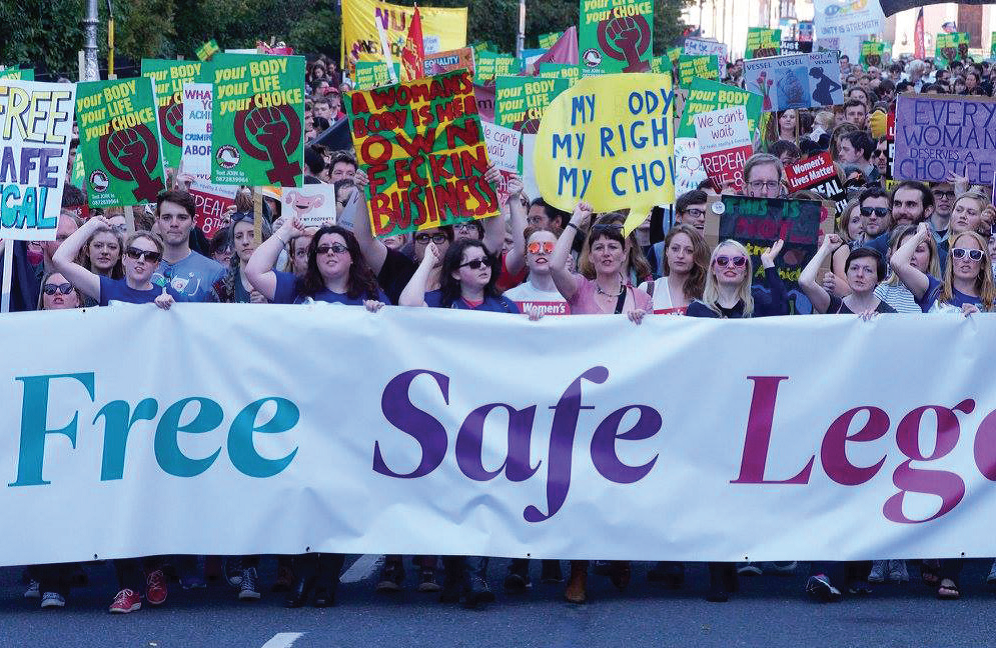At the end of October, pro-choice activists from ROSA travelled around the island in the ‘Abortion Bus’, illegally providing an abortifacient pill to women who needed it.
Reminiscent of the Contraception Train organised by the Irish Women’s Liberation Movement in 1971, the action highlights Ireland’s abortion laws and joins the call for a referendum on the Eighth Amendment, which prohibits abortion except when the mother’s life is in danger.
Speaking in Cork after travelling on the bus, Socialist Party TD Ruth Coppinger said to anti-abortion protestors: “They represent the past and we represent the future. All the figures show that 90% of people favour abortion in certain circumstances. You are screaming down ordinary women here today. You should be ashamed of yourself but you are doing so out of desperation.”
This optimism echoes ‘Chains’, an Amnesty International video narrated by Liam Neeson, which called the Amendment “the shadow of the country we hoped we’d left behind”. The support and shared personal experiences of prominent Irish celebrities has been one of the factors that has kept the issue in the public consciousness, along with a burgeoning pro-choice movement, composed of numerous groups and coalitions.
September saw approximately 10,000 attend the 4th annual March for Choice. Organised by the Abortion Rights Campaign (ARC), the march has grown in numbers each year and saw the participation of numerous foreign delegations.
The Abortion Rights Campaign (ARC), which organised the march, is now a national movement. It has branches in Dublin, Cork, Galway and Limerick and contacts throughout the State.
Also in September, the Coalition to Repeal the 8th Amendment hosted a conference entitled ‘What do Women Need? Why we must Repeal the Eighth Amendment’.
Speaking at the conference, Clare Daly TD commented: “It is the political establishment that is the key barrier to the change that is necessary and wanted on this issue.”
The Coalition is composed of diverse groups such as trade unions, political parties, activist and civil society groups.





